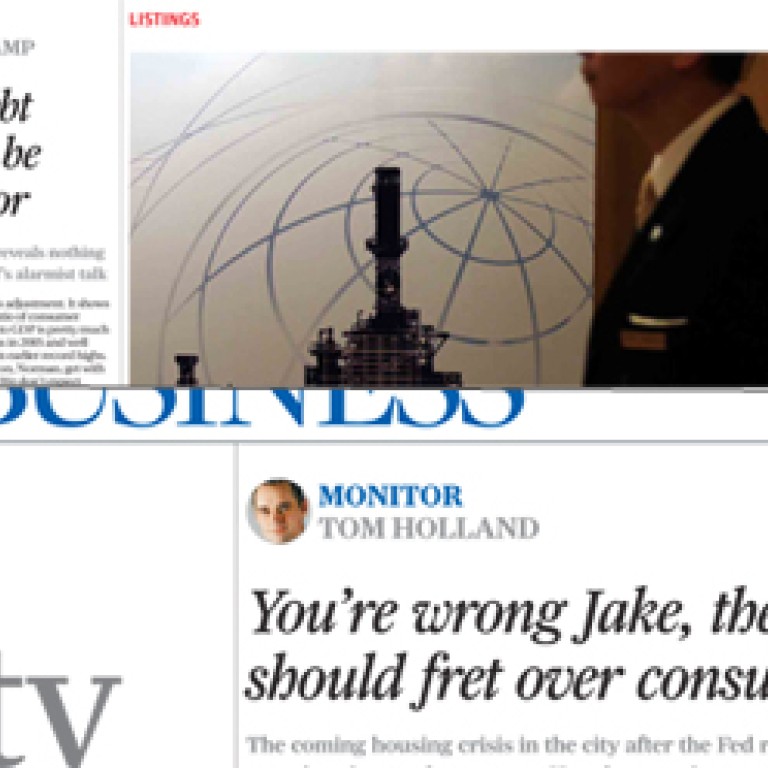
Jake van der Kamp versus Tom Holland: who is right on Hong Kong consumer debt risk?
In Tuesday’s Business section, the Monitor column on the back page decided to pick a fight with the front page’s Jake’s View.
Van der Kamp points out that Chan has been misled by a “superficial” take on the ratio of private consumption to gross domestic product.
What our man forgets is that almost a fifth of consumer spending in our domestic market is now attributable to tourists ... Thus when calculating GDP, established practice is to deduct this tourist spending from the local consumer figures but add back what Hong Kong residents spend abroad. It not only makes sense in GDP but it gives you a better picture of whether local consumer activity is restrained or overheated.
...
[Also] household debt now stands at about 35 per cent of total loans, down from 45 per cent 10 years ago. Overheated? Really?
I am not so sure [Van der Kamp] should dismiss the debt-to-GDP measure so lightly. After all, the ratio of a country's household debts to its national income clearly affects its people's ability to service those debts.
Holland breaks down household debt in the last five years to find three-quarters of it consisting of rising mortgage debts.
When the Fed begins raising interest rates, that cost burden is going to rise, plunging many families into financial hardship - and some into default.
Your turn. Who do you think is right?
